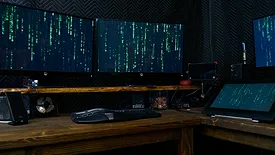Physical Security
Global News & Analysis
US Survey Respondents Indicate Desire for Additional Gun Detection
December 10, 2025
Security Strategy
Balancing Security with Tenant Privacy
Residential properties come with their own challenges, as any technology needs to be accessible to the general public.
December 8, 2025
How to Ensure Security Barriers Don't Become Guest Barriers
Learn effective visitor management practices that balance security with the guest experience.
December 5, 2025
Enterprise Services
From Access Point to Asset: The ROI of Security Entrances
How automated security entrances and proactive maintenance deliver ROI, reduce costs and enhance protection for modern facilities.
December 3, 2025
Special Report
The 2025 Annual Guarding Report: Unrest Inspires Upgrades in Training, Technology
Security executives and guarding companies identify trends in security guarding throughout 2025, from political, executive protection challenges, violence, and theft.
December 1, 2025
Integrated Solutions
5 Steps for Law Enforcement: Prepare for Hurricane Season with New Technology
Public safety professionals can prepare for hurricane season and protect their communities.
November 21, 2025
Security Talk
Inside The 2025 Security Benchmark Report
Security leaders can gain insights into industry trends by comparing The Security Benchmark Report data year-over-year.
November 19, 2025
Sign-up to receive top management & result-driven techniques in the industry.
Join over 20,000+ industry leaders who receive our premium content.
SIGN UP TODAY!Copyright ©2026. All Rights Reserved BNP Media.
Design, CMS, Hosting & Web Development :: ePublishing















